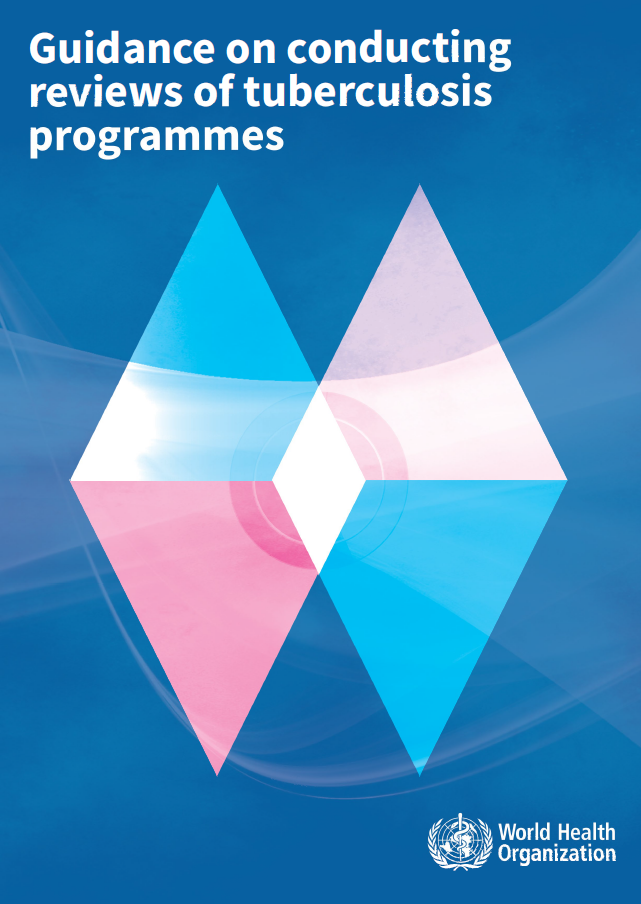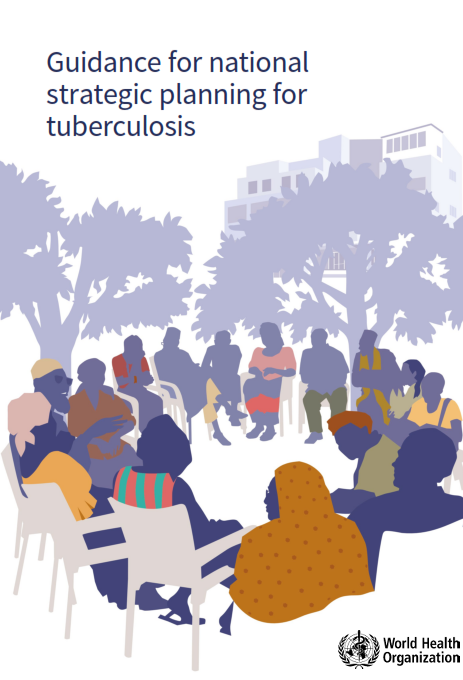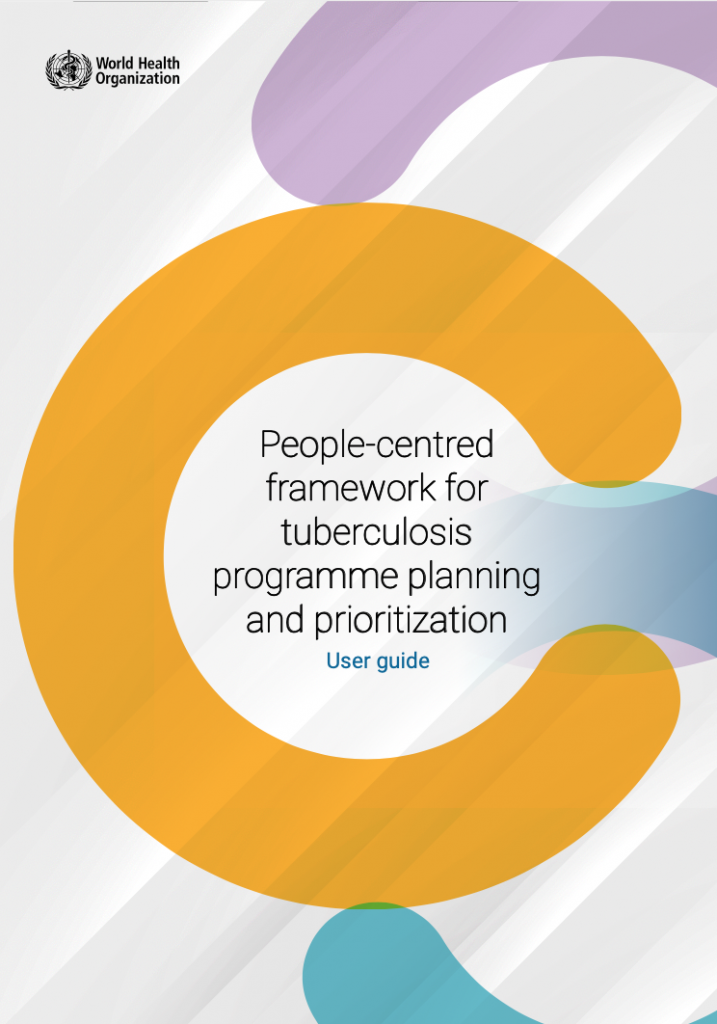GLOBAL GUIDANCE
The PCF approach, along with the information and tools in this Knowledge Hub, have its foundations on WHO’s guidance.
The “WHO People-Centred Framework for Tuberculosis Programme Planning and Prioritization: User Guide” provides information and necessary tools to help align a tuberculosis program with WHO’s recommendations. Further guidance by WHO is found in their document “WHO Guidance for national strategic planning for tuberculosis” released in 2022, outlining the best practices and steps for creating a TB NSP that adheres to WHO’s End TB Strategy. The most recent guiding document on TB programs that WHO released, the “WHO Guidance on conducting reviews of tuberculosis programmes“, emphasizes the crucial role that program reviews play within the TB management cycle, offering a structured approach to assessing program performance and improving quality by encouraging participatory, evidence-based, country-led and country-owned program reviews.
Access to these resources can be found below.
WHO Guidance on conducting reviews of tuberculosis programmes (2023)
In 2023, World Health Organization (WHO) crafted a guidance document focused on enhancing TB program reviews with a strong emphasis on people-centeredness. Emphasizing the integral role of program reviews within the TB management cycle, the document offers a structured approach to assessing program performance and improving quality, while also informing the development or updating of NSPs. Complementing existing WHO previous guidance, it incorporates lessons learned and stakeholder experiences to better align with global commitments and strategies.
This resource is primarily intended for ministries of health, the guidance encourages the involvement of various stakeholders, fostering participatory, evidence-based, country-owned, and country-led program reviews. Ultimately, these reviews aim to contribute to improved health and social outcomes, advancing efforts towards achieving End TB targets and universal health coverage.
WHO Guidance for national strategic planning for tuberculosis (2022)
The Guidance for national strategic planning for tuberculosis is intended for use in developing standalone TB strategic plans, or in developing TB interventions as part of multi-disease or national health sector plans. It describes good practices and steps for developing a TB NSP in line with WHO’s End TB Strategy, and the proposed structure and components of the TB NSP.
This guidance is meant to help you create a TB strategic plan that can stand on its own, or develop TB interventions as part of a bigger plan that includes other diseases or national health sector plans. It outlines the best practices and steps for creating a TB NSP that adheres to WHO’s End TB Strategy, as well as the proposed structure and components of the TB NSP.
WHO People-Centred Framework for tuberculosis programme planning and prioritization: user guide (2019)
In recent years, there has been a significant increase in the availability of quality data to track the TB epidemic. This is thanks to significant investments in national surveys, surveillance and programmatic data improvements, and other studies. However, even though data on tuberculosis is more readily available than in the past, this information is only sometimes used to develop national tuberculosis prevention and control plans. This needs to change, as it’s essential for effective national TB planning and prioritization.
In 2018, WHO and its partners developed the “people-centred framework for TB programme planning and prioritization”. The framework aims to enable a systematic, data-driven and people-centred approach to country-led planning, prioritization and decision-making. The framework is most effectively applied during the development of a country’s National Strategic Plan (NSP). However, it can also be applied at other points in the country’s planning and policy cycle.
The user guide outlines the concept of the framework and its possible applications, case studies, data consolidation process and the organization of a PCF workshop.


